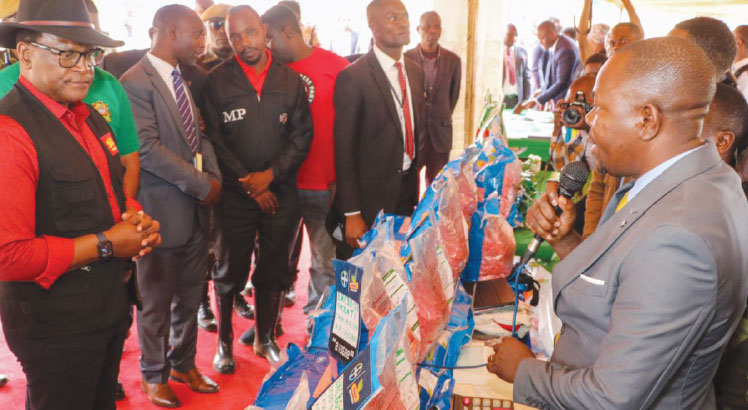Devaluation disrupts hunger response, AIP
Thursday’s 44 percent devaluation of the kwacha has negatively affected the Affordable Inputs Programme (AIP) and the hunger response, forcing authorities to review the two food insecurity interventions.
In separate interviews yesterday, Ministry of Agriculture Principal Secretary Dickxie Kampani and Department of Disaster Management Affairs (Dodma) spokesperson Chipiliro Khamula said the programmes have been affected by the devaluation, which will affect funding allocations.
Kampani said following the devaluation, the AIP budget may have to be revised as prices of commodities are going up.
He said: “Transporters will have to ask for more on the rates. Prices of seed have gone up, farmers have to pay more for the seed. It will affect the budget.”
On how much will now be needed to implement the AIP, Kampani said such issues are being handled at a higher level.
However, random checks on the retail market indicate that fertiliser prices have jumped from about K70 000 to K107 000 per 50 kilogramme bag.
In the 2023/24 National Budget, AIP was allocated K109 billion targeting 1.5 million beneficiaries. Out of the allocation, K102 billion was for fertiliser, K6.562 billion for seeds, K0.585 billion for goats, and K0.67 billion was for logistics.

Asked if government will manage to reach all beneficiaries within the 40-day deadline for AIP distribution, Kampani declined to comment.
During the launch of this year’s AIP on October 20 in Kasungu, President Lazarus Chakwera gave the ministry 40 days to deliver the programme.
In a separate interview, Dodma spokesperson Chipiliro Khamula said the department intends to review its food insecurity response plan following the kwacha devaluation which has also led to a rise in fuel prices and other commodities.
The response plan is supporting 4.4 million people that are food insecure.
Khamula said Dodma needs to revise the cash transfer amount that each household will be getting as well as the rates for transportation, but indicated that there are no plans to reduce number of beneficiaries.
Under the cash transfers, each beneficiary household is receiving K50 000 per month.
“We intend to revise the rates as a matter of urgency. We will inform our partners on the development,” said Khamula.
Dodma secured $78 million for cash transfers and is also expected to distribute 164 000MT of maize.
Meanwhile, Parliamentary Committee on Agriculture chairperson Sameer Suleman has faulted government for taking time to roll out the AIP.
In an interview yesterday, he said if all the AIP fertilisers, seeds and goats had been distributed by October as government earlier indicated, farmers would not have been affected.
Said Suleman: “If nothing is done, less than one million beneficiaries will be supported by AIP, which will have impacts on crop yield for this growing season.”
In a separate interview, agriculture policy expert Tamani Nkhono Mvula said the devaluation has come at a very bad time for farmers.
He said it is bad for all farmers whether on AIP or commercial, adding the prospect of hunger is very high due to the impact the devaluation will have.
Said Mvula: “Even some farmers under AIP will not access fertiliser due to unavailability of the commodity. It will be hard for government to reach all the beneficiaries with fertiliser due to increased costs.”
As of Thursday last week, before government announced the current devaluation, Ministry of Agriculture had distributed almost 37 000 metric tonnes (MT) of fertiliser under AIP out of the 149 164MT, comprising 30 400MT and NPK 6 544MT Urea.





